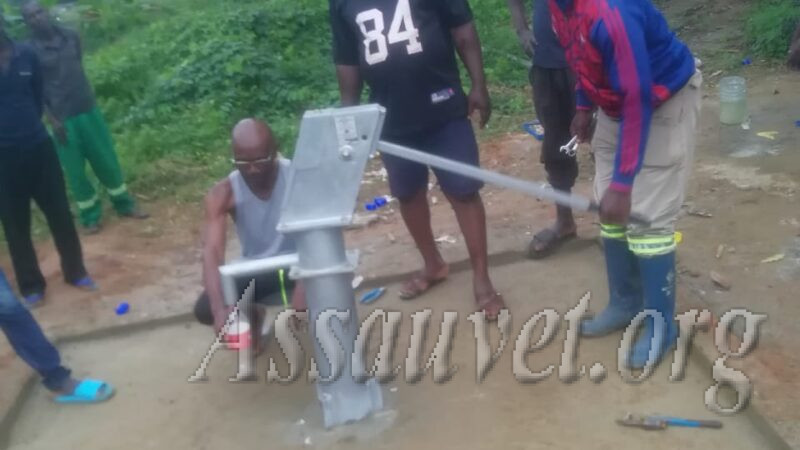Eseka public school drilling

The lack of basic water, sanitation and hygiene (WASH) facilities in schools has a significant impact on school life and on pupils, particularly girls. When girls do not have safe and equitable access to private toilets and sanitation, the likelihood of them missing school or dropping out increases significantly. This does not have to be the case.
WASH services in schools and the sanitation and hygiene crisis also extend to public institutions, particularly health facilities and schools, with one-third of the latter lacking basic sanitation services.
In 2016, 1 billion children worldwide attended such schools. For more than 500 million of them, their schools had no water, sanitation and hygiene (WASH) services, which means that in 50% of schools worldwide, these services are limited or non-existent. In Cameroon, in the most disadvantaged regions, this figure is close to 70%.
The lack of separate sanitation, water and hygiene facilities for girls and boys in schools not only compromises children’s health and dignity, but also significantly reduces the quality of the educational environment and means that some children, particularly adolescent girls, regularly have to miss classes.
Poorly designed latrines can mean that children with disabilities cannot access them, and a lack of upkeep and maintenance leaves facilities dirty, smelly, defective, and generally unusable.
The lack of basic facilities for washing hands with soap means that children cannot wash their hands before the 10 o’clock break or after going to the toilet, which increases the risk of disease.















